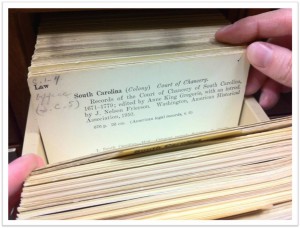Washington State Library promotes technology
The good ol’ card catalog. How we miss it?
The card catalog was a dominant technology for several centuries harkening back to the French Revolution when after raiding religious houses of their books and manuscripts the revolutionaries established a system of public libraries and the French Cataloging Code of 1791. The bibliographic information for each book was recorded on the blank back of playing cards, hence the card in card catalog.
In the 1960s with the development of machine readable automated cataloging – the MARC record – and the rise of OCLC, a bibliographic utility that stores library information electronically, libraries abandoned their card catalogs seduced by computer catalogs otherwise known as online public access catalogs.
Along came Bill and Melinda Gates and Bill Gates, Sr. with their vision of placing PC’s in every public library in the United States. Thus the Bill & Melinda Gates Foundation’s U.S. Libraries program was born around 1997.
At that time only about 25% of public libraries offered access for the public to the Internet.
The nation’s state libraries partnered with the Bill and Melinda Gates Foundation and by 2004 the Foundation had invested $240 million in placing computers in libraries and had connected 99 percent of U.S. public libraries to the Internet.
However, as wonderful and as crucial as the U.S. Libraries Program was, it was just the beginning of libraries adapting new technologies.
Over a period of time, roughly 1998 to 2014, the Washington State Library through its administration of federal Library Services and Technology Act (LSTA) funds invested $4.2 million in technology-related grants to libraries.
These grants have helped bring connectivity to libraries; have provided laptop and tablet training labs; and we helped libraries dip their toes into the pool of digital imaging.
Later we taught local libraries how to digitize their historical treasures, how to make the images find-able through metadata, and hosted these digital collections for libraries who retained the originals.
In the early 2000s the State Library helped create a “virtual reference network.” The concept was to create a network of participating libraries across the state that would, by collaborating with and linking to a national network, share responsibility for providing customers with information 24/7/365 – that is, to anyone, anywhere they might be, and at any time. Customers are served even when the library is not open. That program lives on as Ask-WA.
Perhaps the most ambitious project we have undertaken was joining a loose-knit collaborative of anchor institutions (schools, hospitals and libraries), non-profits, state and local government agencies and others to apply for Broadband Technology Opportunity Program grants. Two successful applications, one in summer 2009 and the other in Spring 2010 netted $138 million awarded to the Northwest Open Access Network to bring higher bandwidth connectivity to rural Washington communities. When in the second round application the federal government added a matching fund requirement to the application our friends the Gates Foundation stepped up and provided the match for several state libraries including Washington.
We have also provided professional development grants to individuals to take technology courses and have provided technology-related training.
Lately we have engaged in the provision of free online technology training by partnering with Microsoft. With funding from the Washington legislature and large discounts from Microsoft the Washington State Library is able to offer the Microsoft IT Academy free to any resident of Washington through public, two-year, and tribal libraries. Schools also offer the Academy and it is administered by the Office of the Superintendent of Public Instruction.
We are taking the Academy to a deeper level by pairing with Workforce Development and supporting training among the tribes using the Academy to address digital literacy needs on the reservations.
So while the card catalog remains an object of fond memories, one which many of us lovingly display in our homes, if we were lucky enough to snag one, I doubt any of us would go back.
Technology will change libraries. The Washington State Library, as a change agent, is committed to lead the charge.
You can follow any responses to this entry through the RSS 2.0 feed. Both comments and pings are currently closed.






